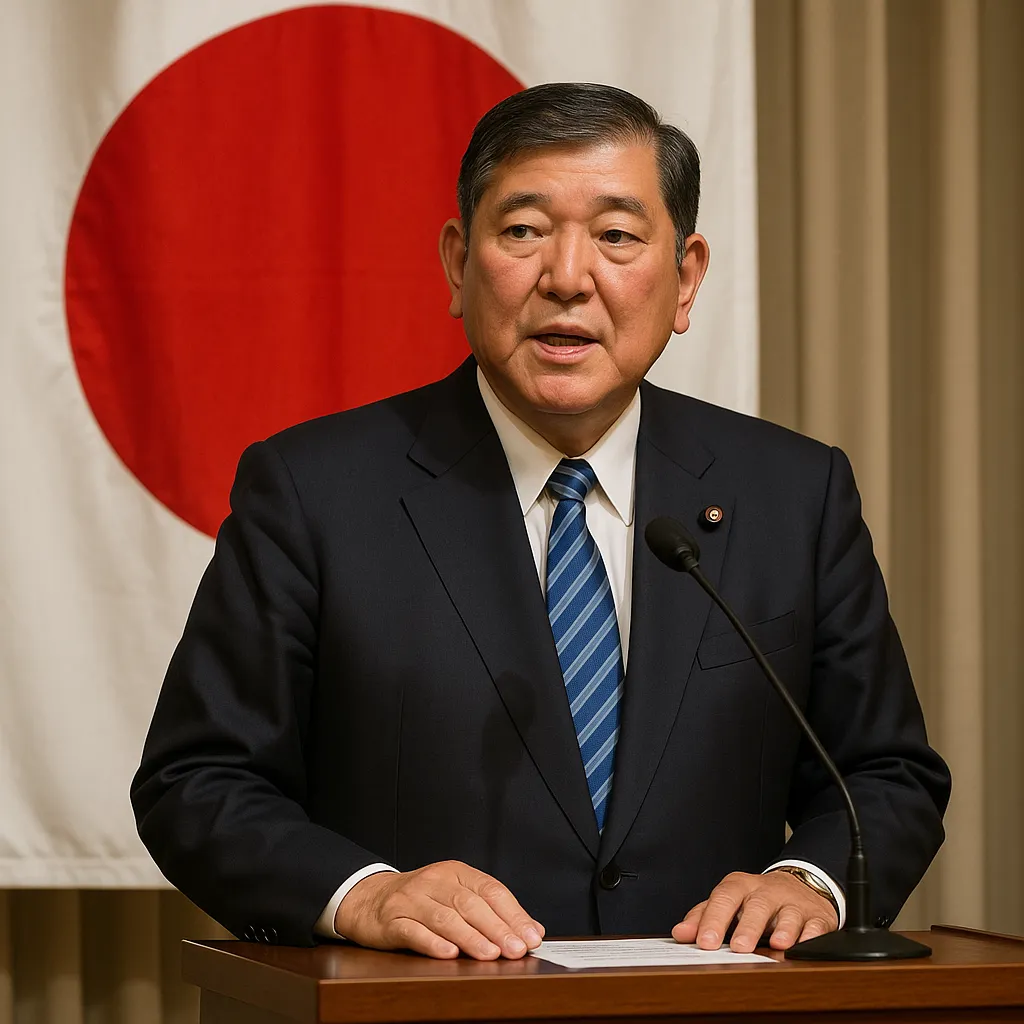Japan PM Ishiba Resigns After Election Setbacks

Lead: Japanese Prime Minister Shigeru Ishiba announced his intention to resign on Sunday to avert a split within his Liberal Democratic Party and take responsibility for recent election losses.
Nut Graf: Ishiba’s decision underscores mounting pressure after his coalition lost parliamentary majorities and comes just as a US-Japan tariff deal concludes, heightening political uncertainty in the world’s fourth-largest economy.
Key Points
- Ishiba will remain in office until the LDP elects a successor at an emergency leadership vote.
- The resignation follows the LDP’s failure to secure majorities in both the upper and lower houses.
- A recent US tariff agreement, reducing auto levies to 15%, provided a strategic moment for Ishiba’s departure.
Details
Party Unity and Accountability Facing calls from party elders to take responsibility for a bruising upper-house defeat in July, Ishiba opted to step aside rather than risk a divisive no-confidence vote at Monday’s LDP caucus meeting.
Timing with US Trade Deal Ishiba emphasized that concluding negotiations on US tariffs provided “the appropriate moment” to hand over leadership, having personally driven talks that secured reduced levies on Japanese automobiles.
Leadership Election Process An emergency LDP presidential contest is expected in early October. Until then, Ishiba will fulfill prime ministerial duties, ensuring continuity on critical issues such as inflation control and regional security.
Economic and Political Impact Analysts warn that policy paralysis may deepen amid ongoing tariff implementation and rising living costs. Potential successors include Sanae Takaichi, advocating cautious monetary policy, and Shinjiro Koizumi, favoring business reforms.
Next Steps for Japan The LDP’s new leader must rebuild parliamentary majorities to pass key legislation or face repeated confidence challenges. Observers note that opposition fragmentation may delay any parliamentary motion to replace Ishiba directly.
Categories
Autos and vehicles Beauty and fashion Business and finance Climate Entertainment Food and drink Games Health Hobbies and leisure Jobs and education Law and government Other Politics Science Shopping Sports Technology Travel and transportationRecent Posts
Tags
Archives
08/19/2025 (3) 08/20/2025 (40) 08/21/2025 (27) 08/22/2025 (22) 08/23/2025 (4) 08/24/2025 (21) 08/25/2025 (30) 08/26/2025 (24) 08/27/2025 (29) 08/28/2025 (16) 08/29/2025 (9) 08/30/2025 (13) 08/31/2025 (17) 09/01/2025 (167) 09/02/2025 (124) 09/03/2025 (149) 09/04/2025 (112) 09/05/2025 (72) 09/06/2025 (169) 09/07/2025 (162) 09/08/2025 (150) 09/09/2025 (176) 09/10/2025 (194) 09/11/2025 (194) 09/12/2025 (186) 09/13/2025 (207) 09/14/2025 (159) 09/15/2025 (175) 09/16/2025 (198) 09/17/2025 (196) 09/18/2025 (196) 09/19/2025 (207) 09/20/2025 (129) 09/21/2025 (4)